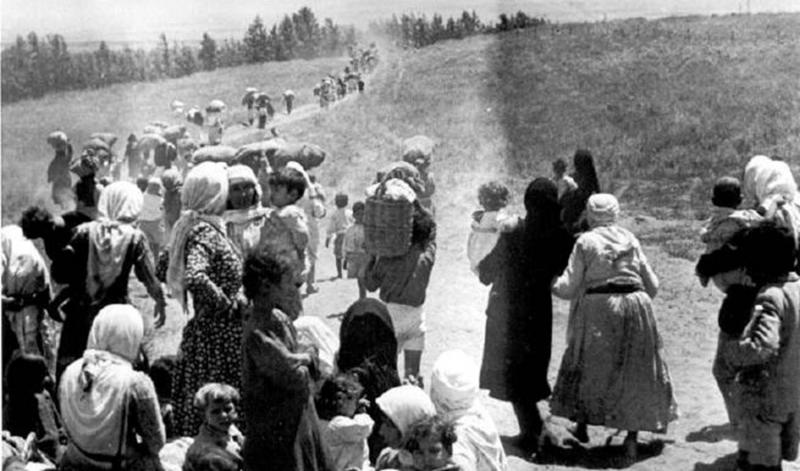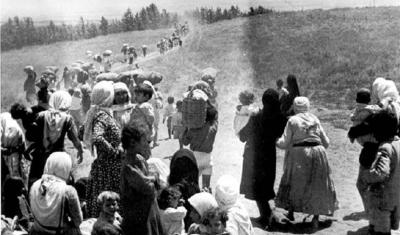On Wednesday, Palestinians commemorate the 76th anniversary of the Nakba, which refers to the mass expulsion of Palestinians from what is now known as Israel, forming the core of their national struggle. However, the Nakba of the past seems minor today compared to the tragedy unfolding in Gaza. Approximately 700,000 Palestinians—most of the population before the war—were either expelled from their homes or fled before and during the 1948 war that followed the establishment of Israel. After the war, Israel refused to allow them to return, fearing it would lead to a Palestinian majority within its borders, resulting in the displaced becoming a permanent refugee community now numbering around 6 million, most of whom live in refugee camps in impoverished areas of Lebanon, Syria, Jordan, and the Israeli-occupied West Bank. In Gaza, refugees and their descendants make up about three-quarters of the population.
Israel's refusal to recognize what Palestinians claim is their right to return is a fundamental grievance in the conflict and one of the contentious issues in peace talks that collapsed 15 years ago. Refugee camps have always remained the main bastions of the Palestinian struggle. Now, many Palestinians fear the painful repetition of their history on a more catastrophic scale.
Across Gaza, in recent days, Palestinians have been loading what remains of their belongings onto cars and donkey-drawn carts or setting off on foot to already overcrowded tent camps as Israel expands its offensive. Photos captured during several rounds of mass evacuations during the ongoing seven-month war bear a striking resemblance to images taken of the displaced during the Nakba in 1948. Mustapha al-Jazzar, now 81 years old, still remembers his family’s months-long journey from their village in what is now central Israel to the city of Rafah in southern Gaza when he was just 5, where they were bombed from the air and had to dig holes in tree trunks to sleep in search of warmth.
Al-Jazzar, now a grandfather, was forced to flee once more on Saturday, this time to a tent in the Mawasi area, a barren coastal region where around 450,000 Palestinians live in wretched conditions, noting that the circumstances are worse than in 1948 when the United Nations Relief and Works Agency for Palestine Refugees (UNRWA) could reliably provide food and other essentials. He said, "I hoped to return in 1948, but my hope today is to survive." While crying, he added, "I live in great fear. I cannot support my children and grandchildren."
The war in Gaza, ignited by Hamas's attack on Israel on October 7, has resulted in the deaths of over 35,000 Palestinians, according to local health officials, making it the deadliest round of fighting in the conflict's history. Hamas's attack on southern Israel on October 7 killed about 1,200 Israelis. The war has forced around 1.7 million Palestinians—about three-quarters of the area's population—to flee their homes, often multiple times. This figure is more than double the number of displaced individuals who fled before and during the 1948 war. Israel has closed its borders, while Egypt has allowed only a few Palestinians to leave, partly due to concerns that widespread displacement could lead to another long-term refugee crisis.
The international community strongly opposes any mass expulsion of Palestinians from Gaza—a notion embraced by far-right members of the Israeli government, who refer to it as "voluntary migration."




